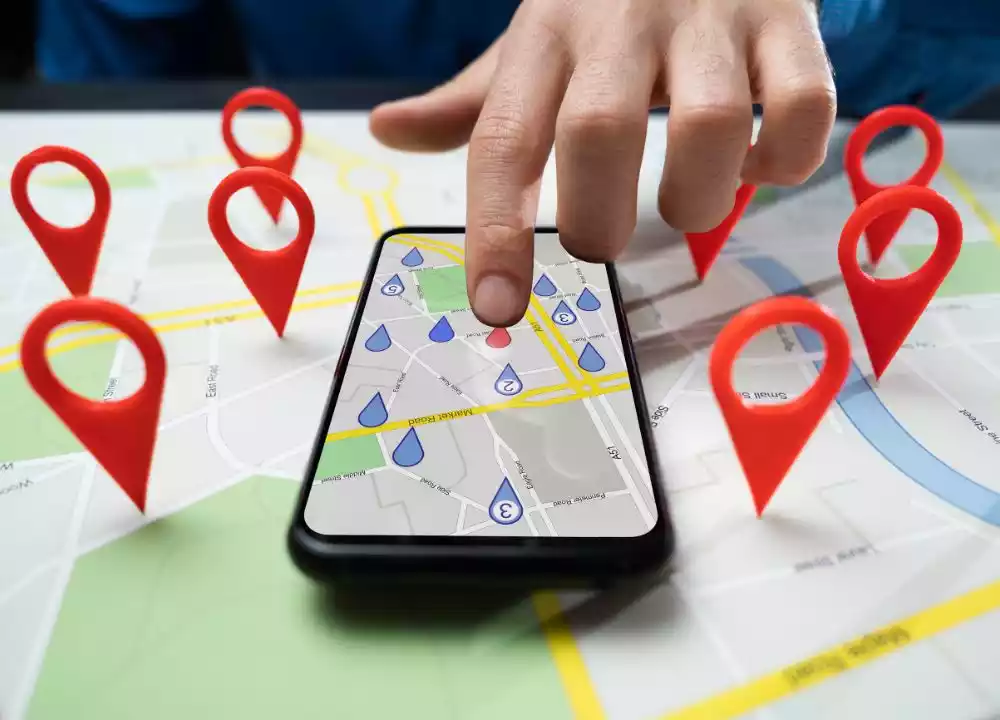In an era where digital visibility can make or break a small business, mastering the art of Local SEO is no longer optional—it’s essential. Imagine your quaint coffee shop nestled in a bustling neighborhood, yet potential customers are oblivious to its existence simply because they can’t find it online. The good news? With a well-structured Local SEO Checklist, you can elevate your business from obscurity to prominence on search engine results pages.
This step-by-step guide will walk you through the crucial elements needed to optimize your online presence effectively, ensuring that local customers find you when they’re searching for products and services like yours. From perfecting your Google Business Profile to harnessing the power of localized content, each item on this checklist serves as a building block toward achieving higher rankings and attracting foot traffic to your door. Let’s dive into these essential strategies that will empower your business in today’s competitive landscape!
| Claim and Verify Google Business Profile | Claim your Google Business Profile and ensure it is verified for local visibility. |
| Optimize Google Business Profile Information | Ensure your business name, address, phone number, and other details are accurate and optimized. |
| Add High-Quality Photos | Upload high-quality photos of your business, products, or services. |
| Select the Right Business Categories | Choose primary and secondary categories relevant to your business. |
| Add Business Hours | Provide accurate business hours, including holidays and special events. |
| Write a Compelling Business Description | Craft a keyword-rich and engaging description for your business. |
| Encourage Customer Reviews | Ask satisfied customers to leave reviews on your Google Business Profile. |
| Respond to Customer Reviews | Engage with customers by responding to both positive and negative reviews. |
| Ensure Consistent NAP (Name, Address, Phone) Across Platforms | Make sure your NAP is consistent on your website, social media, and directories. |
| Create Location-Specific Pages on Your Website | Develop landing pages for each business location with unique content. |
| Add a Map to Your Website | Embed a Google Map of your location on your contact or homepage. |
| Use Local Keywords in Metadata | Include city or region-specific keywords in title tags and meta descriptions. |
| Optimize Header Tags with Local Keywords | Incorporate local keywords into H1, H2, and H3 tags. |
| Include Schema Markup for Local Businesses | Add local business schema to your website for better SERP visibility. |
| List Your Business on Online Directories | Submit your business to relevant directories like Yelp, Bing Places, and Apple Maps. |
| Audit and Fix Directory Listings | Ensure all directory listings have consistent NAP information. |
| Get Backlinks from Local Websites | Acquire backlinks from local news sites, blogs, or partner businesses. |
| Participate in Local Sponsorships or Events | Engage with local community events and get mentions online. |
| Monitor Local Rankings with SEO Tools | Use tools like BrightLocal or Whitespark to track your local keyword rankings. |
| Set Up Geo-Targeting in Google Ads | Run paid campaigns targeting specific geographic locations. |
| Create Localized Content | Write blog posts and articles that appeal to local audiences. |
| Add Alt Text to Images with Local Keywords | Optimize images on your site with descriptive, keyword-rich alt text. |
| Optimize Mobile User Experience | Ensure your website is mobile-friendly and loads quickly. |
| Use Location-Based Meta Descriptions | Add city or region keywords to your meta descriptions. |
| Create and Optimize a FAQ Section | Address common local customer queries in your FAQ section. |
| Build Citations on Local Websites | Submit your business information to local citation sites and ensure accuracy. |
| Monitor Online Mentions of Your Brand | Track brand mentions and ensure they are accurate and positive. |
| Enable Reviews on Social Media Platforms | Allow and encourage reviews on Facebook and other platforms. |
| Create Social Media Posts with Local Focus | Highlight local events, news, and collaborations in your posts. |
| Add Call-to-Actions on Local Landing Pages | Include clear CTAs to drive conversions on location-specific pages. |
| Use Local Keywords in Anchor Text | Optimize internal and external links with local keywords in the anchor text. |
| Claim Bing Places for Business | Set up and optimize your business profile on Bing Places. |
| Optimize Your Site for Voice Search | Use natural language and questions in your content for voice search optimization. |
| Run Local SEO Audits Regularly | Audit your local SEO strategy periodically to ensure consistent results. |
| Add Geo-Tagging to Images | Use geotags on your images to help search engines identify your location. |
| Use Local Keywords in URL Structure | Incorporate city or region names into URLs where possible. |
| Create a Local Press Release Strategy | Distribute press releases to local media outlets for exposure. |
| Enable HTTPS for Your Website | Secure your website with HTTPS to boost trust and SEO rankings. |
| Leverage User-Generated Content | Encourage customers to create and share content about your business. |
| Create Video Content for Local Audiences | Develop videos highlighting your local community involvement or services. |
| Track Clicks and Conversions from Local Pages | Use analytics tools to monitor performance on local landing pages. |
| Claim and Optimize Apple Maps Listing | Set up your business on Apple Maps for iOS users. |
| Run Competitor Analysis for Local SEO | Study competitors’ local SEO strategies and adapt them for your business. |
| Leverage Google Posts | Create engaging Google Posts to promote updates and offers. |
| Add Local Business Tags in Ads | Use location extensions in Google Ads for better visibility. |
| Track Phone Calls from Local Listings | Use call tracking tools to measure leads from local profiles. |
| Create Local Guides or Resources | Offer free guides or resources relevant to your local area. |
| Ensure Fast Page Loading Speeds | Optimize your site for faster load times to retain visitors. |
| Host Local Events or Meetups | Organize events and promote them online to increase local reach. |





